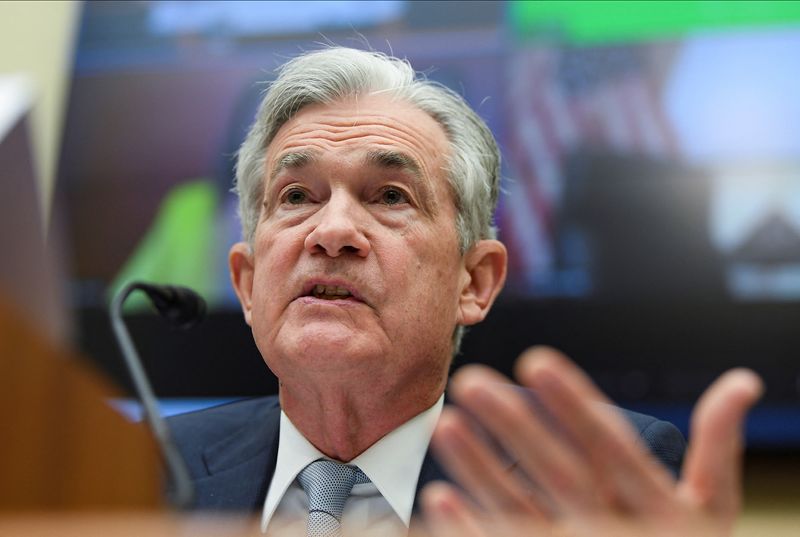Fed’s Powell: ‘Clock is running’ for Fed to bring inflation down
2022.06.29 17:55

FILE PHOTO: U.S. Federal Reserve Board Chair Jerome Powell testifies before a House Financial Services Committee hearing in Washington, U.S., June 23, 2022. REUTERS/Mary F. Calvert
By Howard Schneider and Balazs Koranyi
WASHINGTON (Reuters) -There is a risk U.S. Federal Reserve interest rate increases will slow the economy too much, but the bigger risk is persistent inflation that starts to let public expectations about prices drift higher, Fed chair Jerome Powell said Wednesday.
“The clock is kind of running on how long will you remain in a low-inflation regime … The risk is that because of the multiplicity of shocks you start to transition into a higher inflation regime and our job is to literally prevent that from happening and we will prevent that from happening,” Powell said at a European Central Bank conference.
While “there is a risk” the Fed slows the economy more than needed to control inflation, Powell said, “I would not agree that is the bigger risk. The bigger mistake would be to fail to restore price stability.”
Powell used his appearance at the ECB’s annual conference in Sintra, Portugal, to further emphasize the Fed’s do-whatever-it-takes approach to controlling inflation that remains at a multi-decade high. It led the central bank to approve a surprise 0.75 percentage point interest rate increase at its last meeting and potentially at its next session in July.
Fed policymakers now see the target federal funds rate rising to 3.4% by the end of the year, above the level policymakers feel is needed to begin restricting the economy in the long run.
Powell said the U.S. economy remains “in pretty strong shape,” and able to cope with tighter credit conditions while avoiding recession or even, Fed officials hope, a significant rise in the unemployment rate.
But the path to that so-called “soft landing” is becoming “significantly more challenging” the longer inflation lasts and raises the chance that public inflation expectations become unmoored, Powell said.
“If you are starting got see serious de-anchoring – and we are not – of longer-term inflation expectations, then you are behind,” PowelI said. “Right now we are doing what we need to do…so we don’t find ourselves in that situation.”








